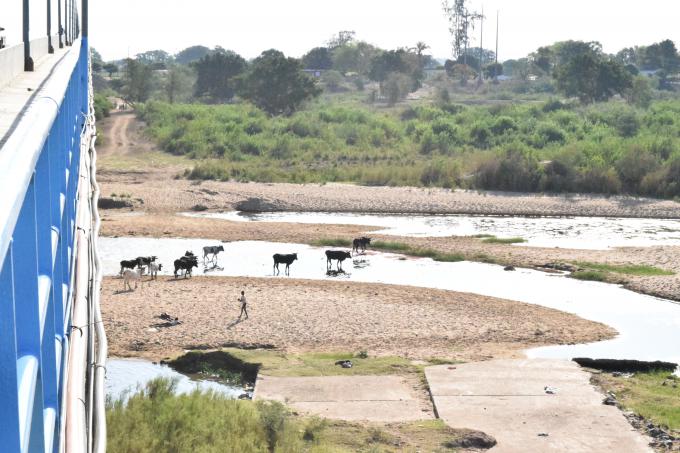EMPTY FARMLANDS: EMPTY STOMACHS
Exposed underbelly of River Limpopo in Chokwe district of Gaza Province.
“This city is impressive.” I think, looking out the cab window on the drive from Maputo International Airport. Well-mannered drivers obey road rules; a notable absence of police attempting to direct traffic; and tidy, quiet streets. “This is quite the opposite to what we have in Nairobi,” I tell Franco, our driver, who for some reason has been calling me sir Eduardo.
Franco smiles back at me, “This is Maputo, sir Eduardo – the real Mozambique is starving.”
As a communications officer in Save the Children’s East and Southern Africa Regional Officer, I am required to travel to different countries in the region to speak to children and families we are supporting.
During my time at Save the Children I have seen families suffering through a lot of hardship. No one, however, had prepared me for what I was about to experience in drought-affected Mozambique.
With colleagues from the Mozambique Country Office, I travelled to Xai-Xai district in Gaza province, where we are implementing an emergency response to the massive drought affecting food security and families’ livelihoods in this part of the country.
It took half a day to move from Xai-Xai to a village called Tsokati, then to Mabalane. From the car I saw parched lands, dry rivers and farm lands devoid of crops or livestock. The rivers were thirsty. The underbelly of Limpopo River is exposed, cracked bare – almost like it is enjoying the heat from the sun’s rays. Water is visible only in small puddles, where some children play in respite from mid-morning sun.
Desperate farmers have also brought cattle to the thirsting river, and they drink from few last puddles which miraculously still have some water.
At Tsokati, we are greeted by villagers who seem elated to see a Save the Children vehicle. To them, Save the Children brings hope for a better tomorrow – hope of life. I notice a few toddlers playing with empty water containers in the searing heat. My heart sinks.
Doli Makamu, a single mother, tells me how livelihood interventions have kept her and her family alive. “I receive food rations which have kept our stomachs filled and the children are able to go to school now.” She says, “Save the children also dug a borehole which has helped the water situation”
“Our farms dried up years ago and we only live with the hope that tomorrow would be better and the skies will open up soon.”
This story is repeated across all the villages we visit. It is a story of empty rivers and dry land. The sun has opened up its fiery tunnels scorching both animals and people and the skies are so clear. No rain.
Mozambique is just one of the Southern African countries that have been affected by one of the worst droughts in 50 years. Other affected countries include Malawi (where reports indicate that 6.5 million - half of which are children - will be affected), Botswana, Lesotho, Swaziland, Namibia Zambia and Zimbabwe.
One-third of the Mozambican population is chronically food-insecure and half a million children aged 6-23 months are undernourished. Malnutrition among children remains alarmingly high at 43 percent under 5 years of age.
Across parts of East and Southern Africa is a certain dryness in the air; it leaves you with a bitter taste – almost like it is choking you. In my thoughts are the millions of children who are experiencing long days on empty stomachs, dry throats and unsure what tomorrow holds.
Earlier in the year, I was in Malawi. Now that I am in Mozambique I am struck by the similarities in the stories families are sharing with me: failed rains; dry rivers; empty farm lands; and empty stomachs.
In Malawi, only one or two rivers had diminished levels of water in our drive from Lilongwe to Blantyre. The rest are dry.
And I know as I travel to more of the region’s drought-affected especially in Southern Africa, countries like Malawi, Mozambique, Zambia, Zimbabwe and even Tanzania - the stories will be the same, yet the suffering will only get worse as time goes on.
There are some images that live with one always whether you are there physically or not. The images of despair in some of the places I visit in the line of duty live with me, the only thing that makes it slightly better is knowing that I work for an organisation that is striving to alleviate the suffering.
As we strive to reach every last child, let’s have a special place for every child experiencing the effects of this horrendous drought in East and Southern Africa.
Blog by Edward Ahonobadha. Regional Communications and Media Officer
 Mozambique
Mozambique 